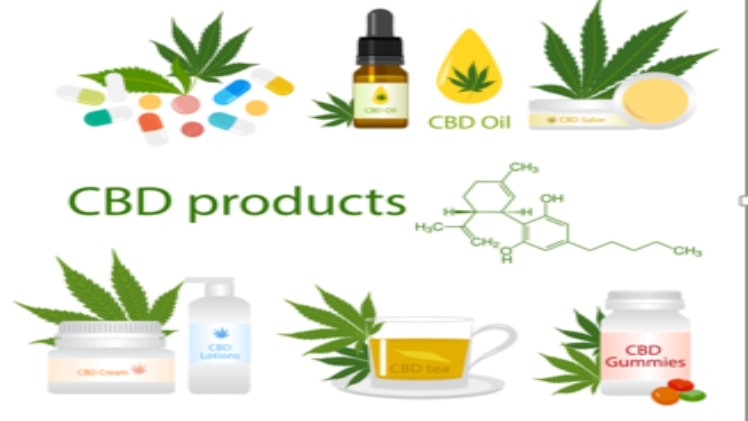There is a growing fascination with CBD (cannabidiol, one of over 100 cannabinoids found in hemp) and other non-psychoactive cannabis extracts due to the wide range of potential therapeutic benefits. As a result, the market for hemp-derived products is expanding rapidly as more consumers become aware that CBD products derived from industrial hemp benefit thousands of Americans.
Despite the growing popularity of CBD, there are still many misconceptions about this compound. Here are eleven of the most common ones, along with the truth about CBD.
Eleven Common CBD Myths and Misconceptions
1) CBD will get you high.
False: While CBD is a cannabinoid like the more well-known THC (tetrahydrocannabinol), it does not have psychoactive properties that produce changes in mood or consciousness like THC does. Some people may become sleepy after using high-CBD products, but this is not the same as getting high.
2) CBD is addictive.
False: CBD does not have psychoactive or euphoric properties that produce a “high” and make it unlikely to be addictive. In fact, the WHO (World Health Organization) has recently stated that “the evidence from well-controlled human experimental research indicates that CBD is not associated with abuse potential.”
3) CBD will make your eyes red.
False: This widely held misconception started because CBD’s sister cannabinoid, THC, actually does cause bloodshot eyes. This is because THC reduces intraocular pressure (IOP) by expanding veins in the eyes, relieving pressure. CBD doesn’t affect the IOP of the eyes in this way and therefore doesn’t cause red eyes.
4) CBD is illegal.
False: Hemp-derived CBD has been legalized in all 50 states through the passing of the 2018 Farm Bill. However, some state regulations have changed to create laws surrounding CBD products that contain THC and other cannabinoids. Therefore, it’s always best to consult your state’s laws before purchasing CBD products. For a unique option, explore thc seltzer, a CBD drink with added cannabinoids.
5) CBD and hemp seed oil are the same.
False: While cold-pressed hemp seed oil is rich in some beneficial omega fatty acids, it does not contain cannabinoids like CBD. This misconception arose because, in the earlier days of CBD product sales, many companies marketed CBD tinctures and oils as “hemp oil,” another common way to refer to hemp seed oil. In addition, some companies use hemp seed oil as a carrier oil for CBD extracts, but CBD with MCT oil tends to be the most popular.
6) All CBD is the same.
False: CBD is a cannabinoid and, as such, it can be found in many different forms and strains of hemp. The quality and composition of CBD products will depend on the plant from which they are extracted, how these plants were grown (organic is best) and the extraction method used. There are also three types of CBD you’ll find in products, and they differ slightly.
- Full-Spectrum CBD includes all the cannabinoids and terpenes found in the hemp plant, including up to 0.3 percent THC (the legal limit).
- Broad-Spectrum CBD contains all the cannabinoids but is THC-free.
- Isolate CBD is pure CBD with no other cannabinoids or terpenes, making it THC-free as well.

7) CBD comes from marijuana.
False: CBD can be extracted from both marijuana and hemp plants. While both are types of cannabis, the two do not share the same cannabinoid composition. Marijuana typically has a very high THC content. At the same time, industrial hemp is rich in CBD and low in THC content (0.3 percent by law). The legal CBD products that you find readily available are hemp-derived. To be sure, check labels and manufacturer websites.
8) CBD is fast-acting.
False: Some people may experience quick results with CBD products, but everyone will have a different reaction time due to factors like weight, metabolism and dosage. CBD does not work instantaneously the way some prescription medication would. It may take a few doses to feel the effects, and some people need a week or more. If you’re not feeling the effects of your CBD products, it’s a good idea to adjust doses and timing. Start with 20 mg per day and slowly increase the amount you’re taking. Also, try different times of day, such as morning, afternoon or evening, depending on the effects you’re looking for. Add it to your coffee for a calm, focused vibe or take it 30 minutes before bed to help you wind down and get better sleep.
9) CBD won’t affect other medications.
False: Just like any supplement, CBD products have the potential to interact with other drugs differently for each person. It’s essential to consult your doctor or pharmacist before starting a new CBD regimen or taking on additional prescriptions to determine how it will affect you specifically.

10) CBD is a ‘cure-all.’
False: CBD is not a miracle cure-all and will not work for everyone. Some people may find that CBD helps relieve certain symptoms, while others may not experience any relief. It’s important to note that everyone’s body is different and will react differently to CBD. Some people may feel more of the effects than others. However, if you’re not feeling the effects of your CBD product, don’t give up yet. There are several reasons why this may be the case, including:
- It’s a low-quality product.
- The strength and serving size are off.
- Inconsistently or improperly using the particular CBD product.
- Your individual genetics and metabolism require you to adjust your use or dose.
- The delivery method you’re using isn’t ideal for you, and you might need to try another. (Common delivery methods include sublingual, vaping, ingestion and topical application.)
11) CBD won’t work for you.
False: Like any supplement, not everyone will have the same results with CBD products. The key is to be patient, stay positive and experiment with different products and dosage levels to see what works best. There is a plethora of research indicating CBD’s potential benefits, so you shouldn’t give up hope if the first product isn’t working for you. Through consistent use, you’ll be able to find the right CBD products and serving size that work best for you.
Have We Missed Anything?
Are there any other popular misconceptions or myths that you’ve heard about CBD? Keep the conversation going in the comment section below and let us know what they are along with the truth about them. We love hearing from our readers!

